Share
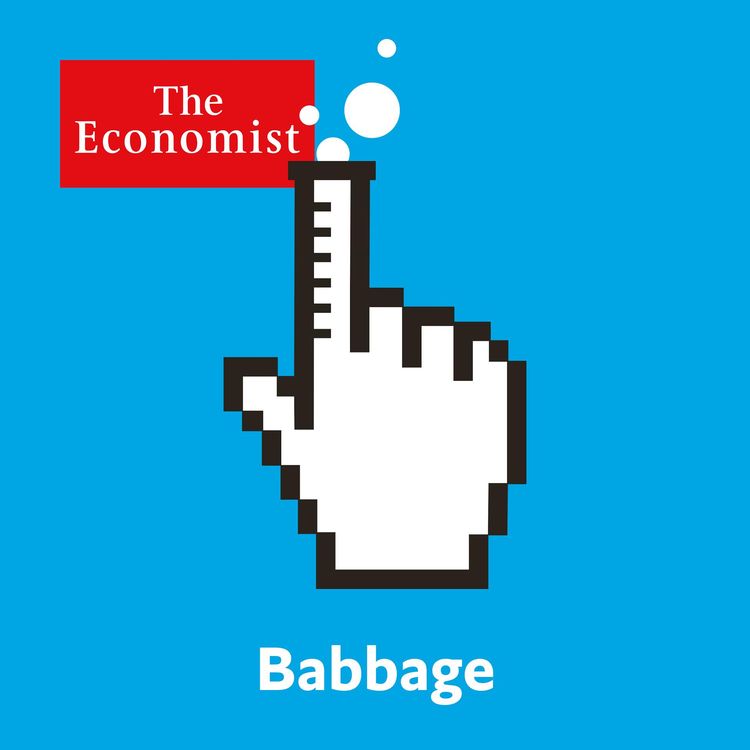
Babbage from The Economist
Babbage: How the planets got their spots
•
The workings of the solar system were once likened to the machinations of a precise clock, but the orbits of the planets haven’t always been so perfectly balanced. How did the planets end up where they are today? Also, the Mars missions which hopes to reveal life on the red planet. And, designer and technologist John Maeda on the importance of understanding machines. Kenneth Cukier hosts
Please subscribe to The Economist for full access to print, digital and audio editions:
More episodes
View all episodes
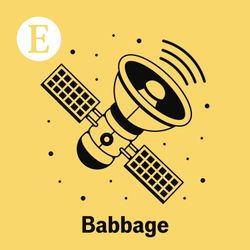
Circuit breakers: how microwaves can knock drones out of the sky
38:59|The evolution of drone technology in warzones, such as Ukraine, is showing no signs of slowing. But as drones have become more capable, the traditional ways to bring them down—such as electronic jamming or physically firing shots at them—are becoming less effective. Engineers have therefore had to get creative. Several companies are dreaming up devices that emit microwave radiation with the aim of disabling the electronics of drones. Could they really protect people from the threats swarming in the skies above?Host: Alok Jha, The Economist’s science and technology editor. Contributors: Thomas Withington of RUSI; Andy Lowery of Epirus; The Economist’s Benjamin Sutherland. For more on Ukraine’s drone war, listen to “The Weekend Intelligence: Inside Operation Spider Web”.Transcripts of our podcasts are available via economist.com/podcasts.Listen to what matters most, from global politics and business to science and technology—subscribe to Economist Podcasts+.For more information about how to access Economist Podcasts+, please visit our FAQs page or watch our video explaining how to link your account.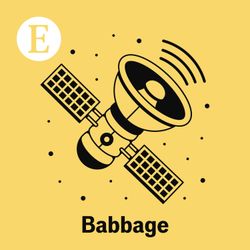
Daniel Davis: an immune-system user’s guide
37:34|Supermarkets and social-media feeds are bursting with “immune-boosting” products that promise to make you better able to fend off infections. But can orange juice really fight a cold? And will a fancy yoghurt help your microbiome prevent illness? Enter a myth-busting immunologist who helps you to ignore the noise and to think critically about your immune health. Alok Jha, The Economist’s science and technology editor, speaks with Daniel Davis, a professor at Imperial College London and the author of a new guide to immune health, “Self Defence”.Transcripts of our podcasts are available via economist.com/podcasts.Listen to what matters most, from global politics and business to science and technology—subscribe to Economist Podcasts+.For more information about how to access Economist Podcasts+, please visit our FAQs page or watch our video explaining how to link your account.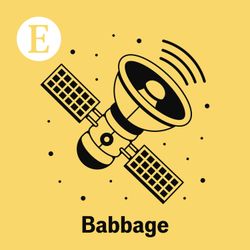
LLM, MD: AI health bots are coming
35:58|The large language models underpinning generative AI have tremendous potential to wrangle messy medical data, chat with patients about their personal health, make diagnoses, and even suggest medications and make appointments. But how to ensure that data are kept private and the advice is trustworthy? We meet some of the researchers trying to develop the long-touted doctor in your pocket.Host: Alok Jha, The Economist’s science and technology editor, with Natasha Loder, our health editor. Contributors: Claire Novorol of ADA Health; Adam Rodman and Jason Gusdorf of Harvard Medical School and the Beth Israel Deaconess Medical Centre.For more on this topic, listen to our two-part series on AI in health care, published in May 2024. Transcripts of our podcasts are available via economist.com/podcasts.Listen to what matters most, from global politics and business to science and technology—subscribe to Economist Podcasts+.For more information about how to access Economist Podcasts+, please visit our FAQs page or watch our video explaining how to link your account.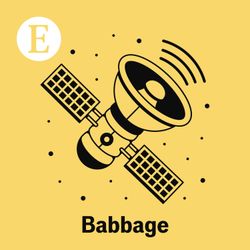
Doomed experiment: Trump’s assault on science
42:02|Across America scientists are reeling as they are hit with wave after wave of grant terminations and funding freezes. Federal science agencies have fired thousands of staff. And President Trump has declared war on the country’s leading universities. The administration says it seeks to usher in a “Golden Age” of science and innovation. Our reporting suggests that it will do the opposite.Host: Alok Jha, The Economist’s science and technology editor, with science correspondent Emilie Steinmark. Contributors: Don Ingber of Harvard University; Amy Nunn of Brown University; Hannah Cooper of Emory University; Brigitte Seim of the University of Minnesota; Jane Carlton of Johns Hopkins University.Transcripts of our podcasts are available via economist.com/podcasts.Listen to what matters most, from global politics and business to science and technology—subscribe to Economist Podcasts+.For more information about how to access Economist Podcasts+, please visit our FAQs page or watch our video explaining how to link your account.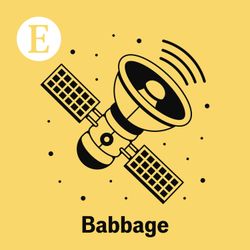
Standard bearers: why it's harder than you think to measure a metre
43:30|The Metre Convention is a treaty that codified the measurement of the metre and the kilogram. Signed on May 20th 1875 in Paris, it facilitated trade and underpinned the development of new technology. Accurate measurements are essential for innovation, but the way scientists perform those measurements has changed over time. Now, 150 years since the treaty was first signed, how are scientists improving measurement standards?Hosts: The Economist’s Alok Jha and Gilead Amit. Contributors: JT Janssen, Andrew Lewis and Anne Curtis at Britain’s National Physical Laboratory. Transcripts of our podcasts are available via economist.com/podcasts.Listen to what matters most, from global politics and business to science and technology—subscribe to Economist Podcasts+.For more information about how to access Economist Podcasts+, please visit our FAQs page or watch our video explaining how to link your account.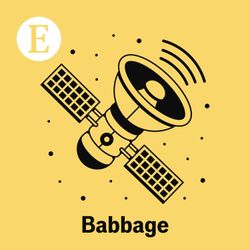
Richard Cytowic: the human brain in the digital age
27:01|In the 1980s Richard Cytowic, a neurologist, came across a patient whose senses seemed to blur into one another. His research into this strange condition defined the modern understanding of what would come to be known as synesthesia. In his latest work he’s been taking on the digital age. His new book considers how humans’ slow-to-evolve brains are at odds with an ever-changing technological environment. As the world gets relentlessly more digital, Professor Cytowic considers the impact of all that information on our attention spans, learning, and even the ability to form human connections.Hosts: Alok Jha, The Economist’s science and technology editor. Contributor: Richard Cytowic, professor of neurology at George Washington University and the author of “Your Stone Age Brain in the Screen Age”.Transcripts of our podcasts are available via economist.com/podcasts.Listen to what matters most, from global politics and business to science and technology—subscribe to Economist Podcasts+.For more information about how to access Economist Podcasts+, please visit our FAQs page or watch our video explaining how to link your account.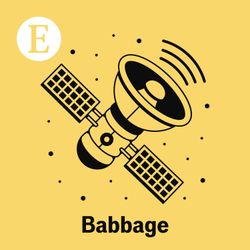
Early onset: why is cancer on the rise in younger people?
38:50|The number of people under 50 being diagnosed with cancer has risen dramatically in recent decades. Many cases cannot be explained by a family history of disease or any lifestyle factors—such as smoking, drinking or unhealthy foods—that would otherwise put the individuals at a higher risk. Explaining this rise in early-onset cancer has therefore presented a conundrum. But clues are now emerging—is there some kind of exposure in the environment that could perhaps explain some of the cases?Host: Alok Jha, The Economist’s science and technology editor. Contributors: Ann Young, who was diagnosed with breast cancer in her 30s; Mike Stratton of the Wellcome Sanger Institute; Slavea Chankova, The Economist’s health-care correspondent. Thanks also to Meg Bernhard, who wrote about Ann’s story in The Economist.Transcripts of our podcasts are available via economist.com/podcasts.Listen to what matters most, from global politics and business to science and technology—subscribe to Economist Podcasts+.For more information about how to access Economist Podcasts+, please visit our FAQs page or watch our video explaining how to link your account.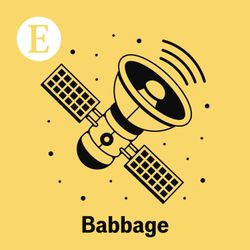
Herman Pontzer: what people get wrong about metabolism
35:26|Do you run, cycle or swim to lose weight? Herman Pontzer, an evolutionary anthropologist who specialises in understanding how humans use energy, thinks you’re probably wasting your time. His idea of the “exercise paradox” suggests that the amount of energy people use in a day is constrained (by evolution) and that exercising more doesn’t end up burning more calories. Figuring out why our bodies work like this is part of Prof Pontzer’s bigger project to map out and better understand how evolution has shaped variations in human biology. Hosts: Alok Jha, The Economist’s science and technology editor. Contributor: Herman Pontzer, professor of evolutionary anthropology and global health at Duke University and the author of “Burn” and “Adaptable”.Transcripts of our podcasts are available via economist.com/podcasts.Listen to what matters most, from global politics and business to science and technology—subscribe to Economist Podcasts+.For more information about how to access Economist Podcasts+, please visit our FAQs page or watch our video explaining how to link your account.
Trailer: Boss Class Season 2
02:03|Good bosses are rare. They don’t have to be. The skills of management can be learned.The Economist’s management columnist, Andrew Palmer, is here to help. The second season of Boss Class features leaders at some of the world’s best performing companies, from Levi’s to Novo Nordisk to Google. New episodes are out weekly starting May 12th. To listen to the full series, subscribe to Economist Podcasts+. https://subscribenow.economist.com/podcasts-plusIf you’re already a subscriber to The Economist, you have full access to all our shows as part of your subscription. For more information about how to access Economist Podcasts+, please visit our FAQs page or watch our video explaining how to link your account.